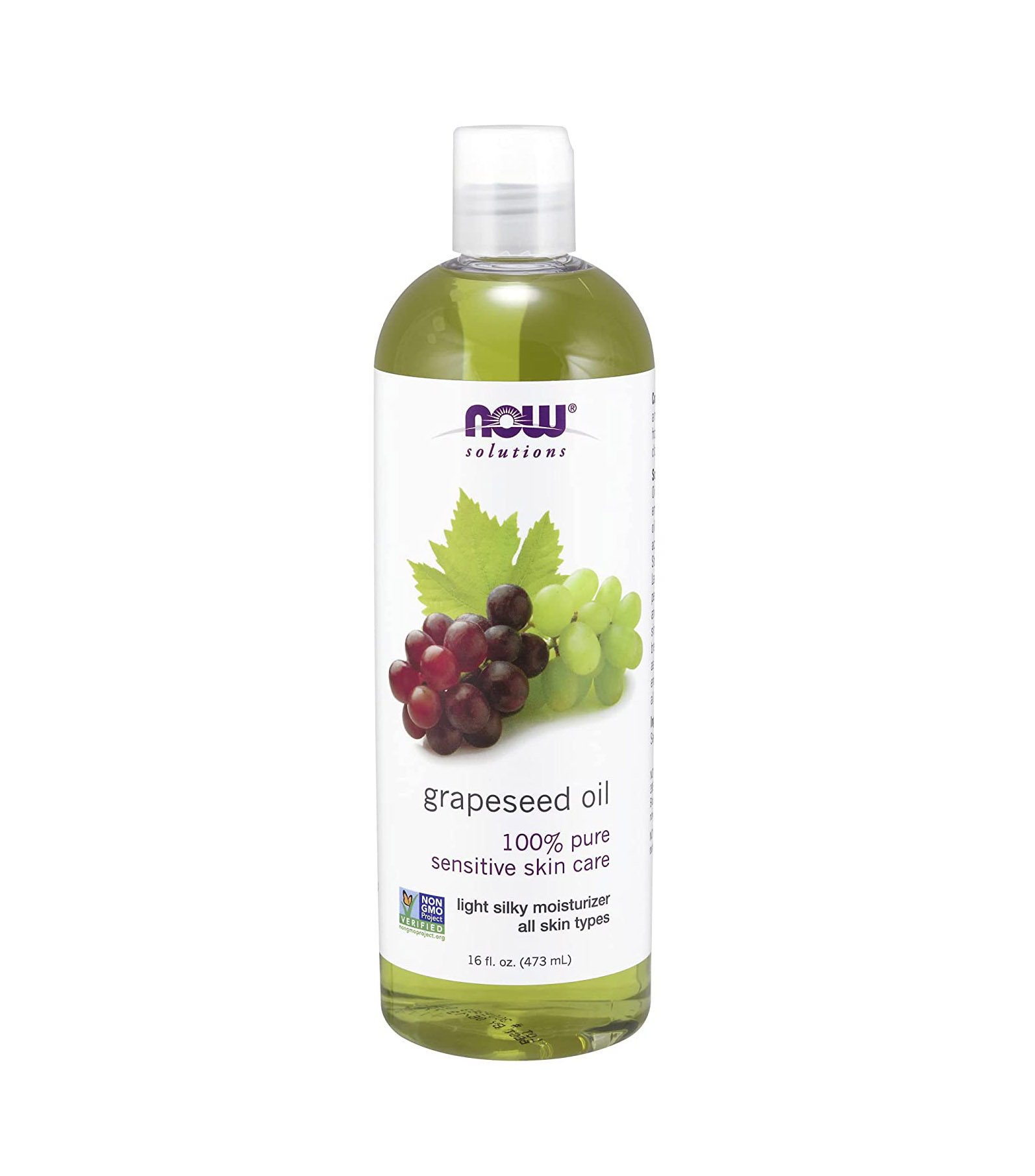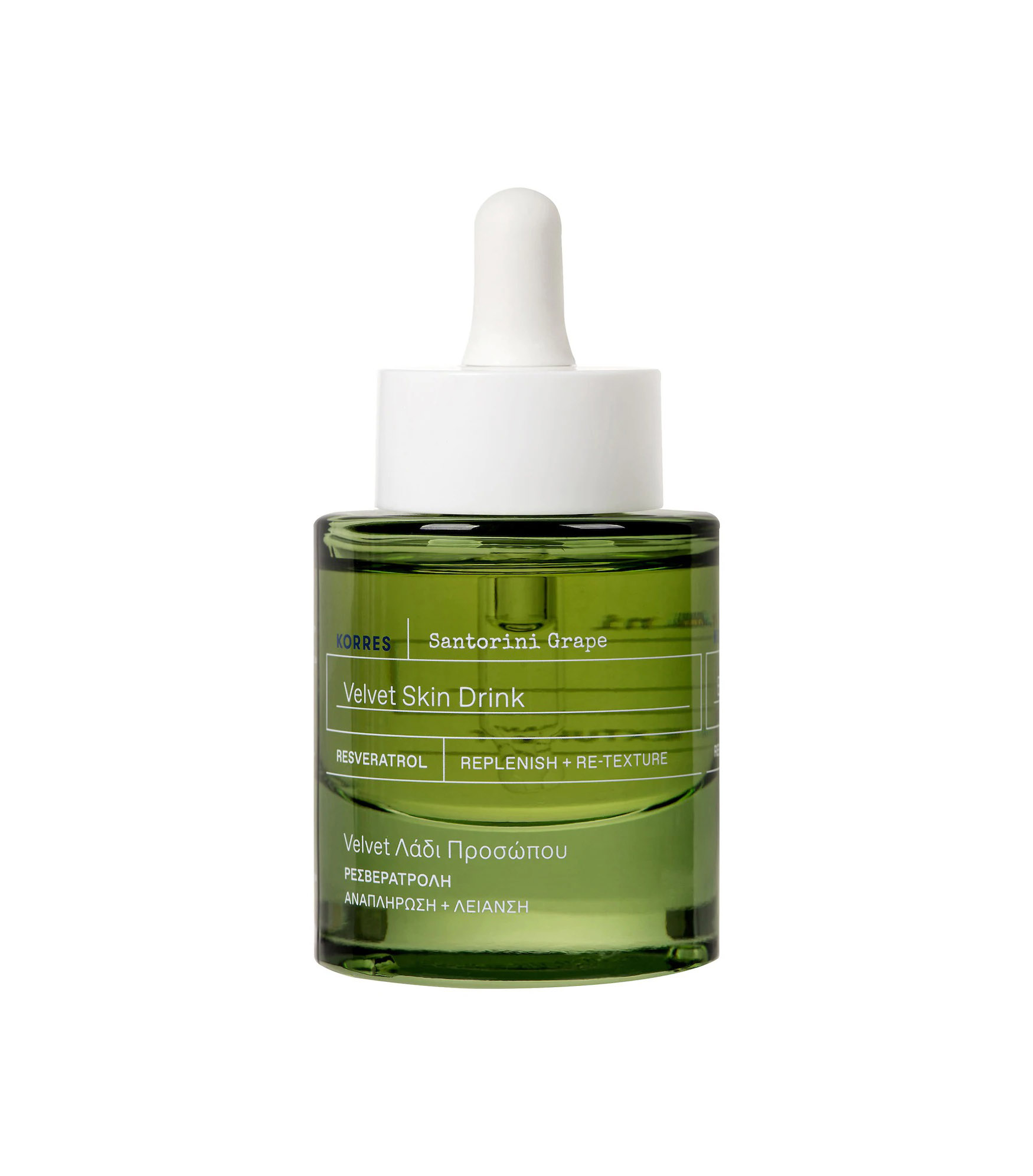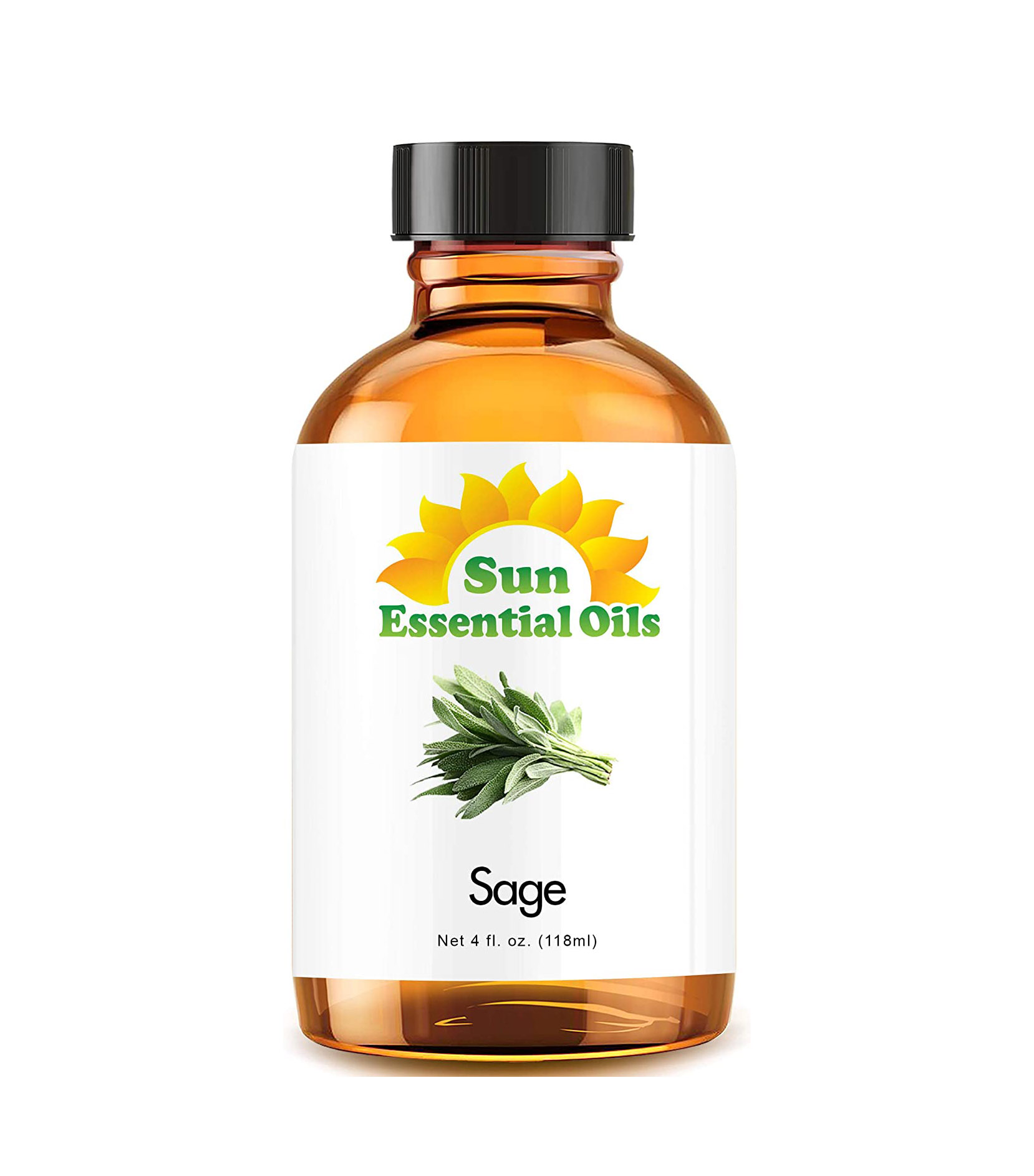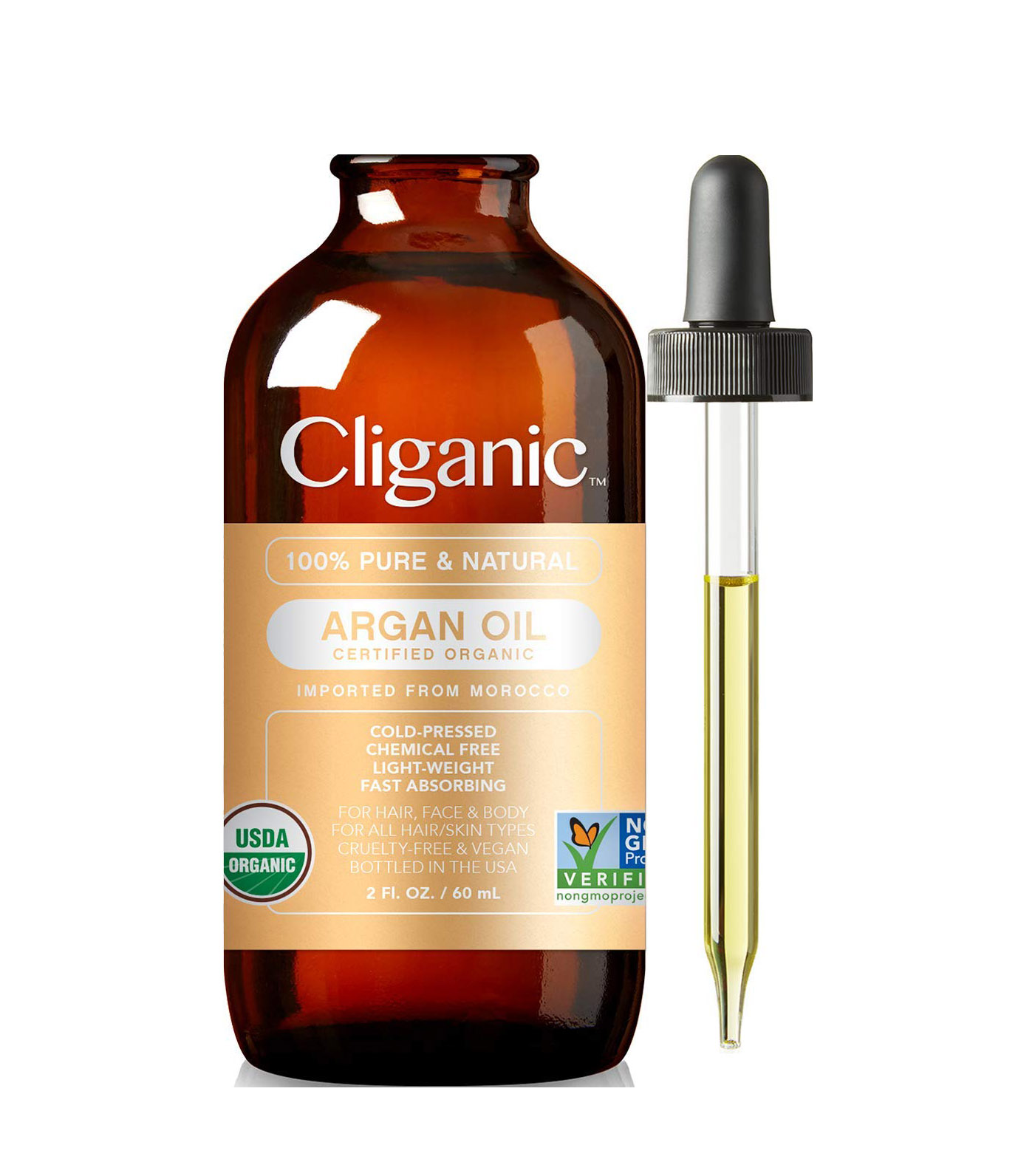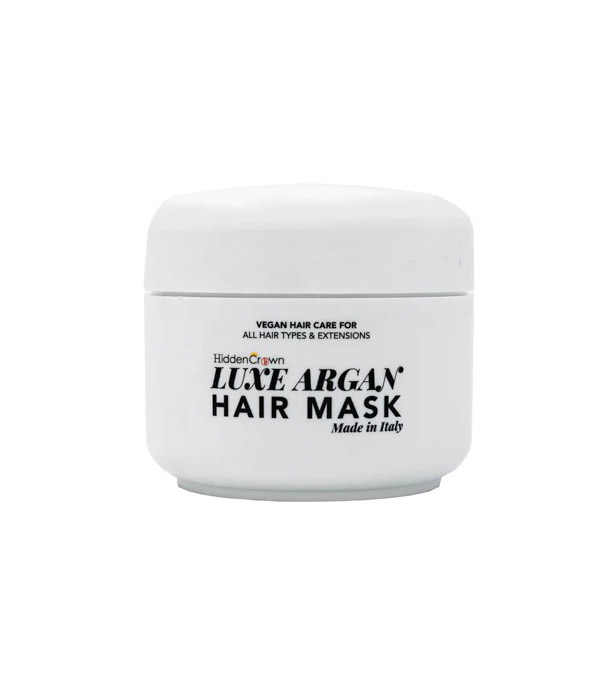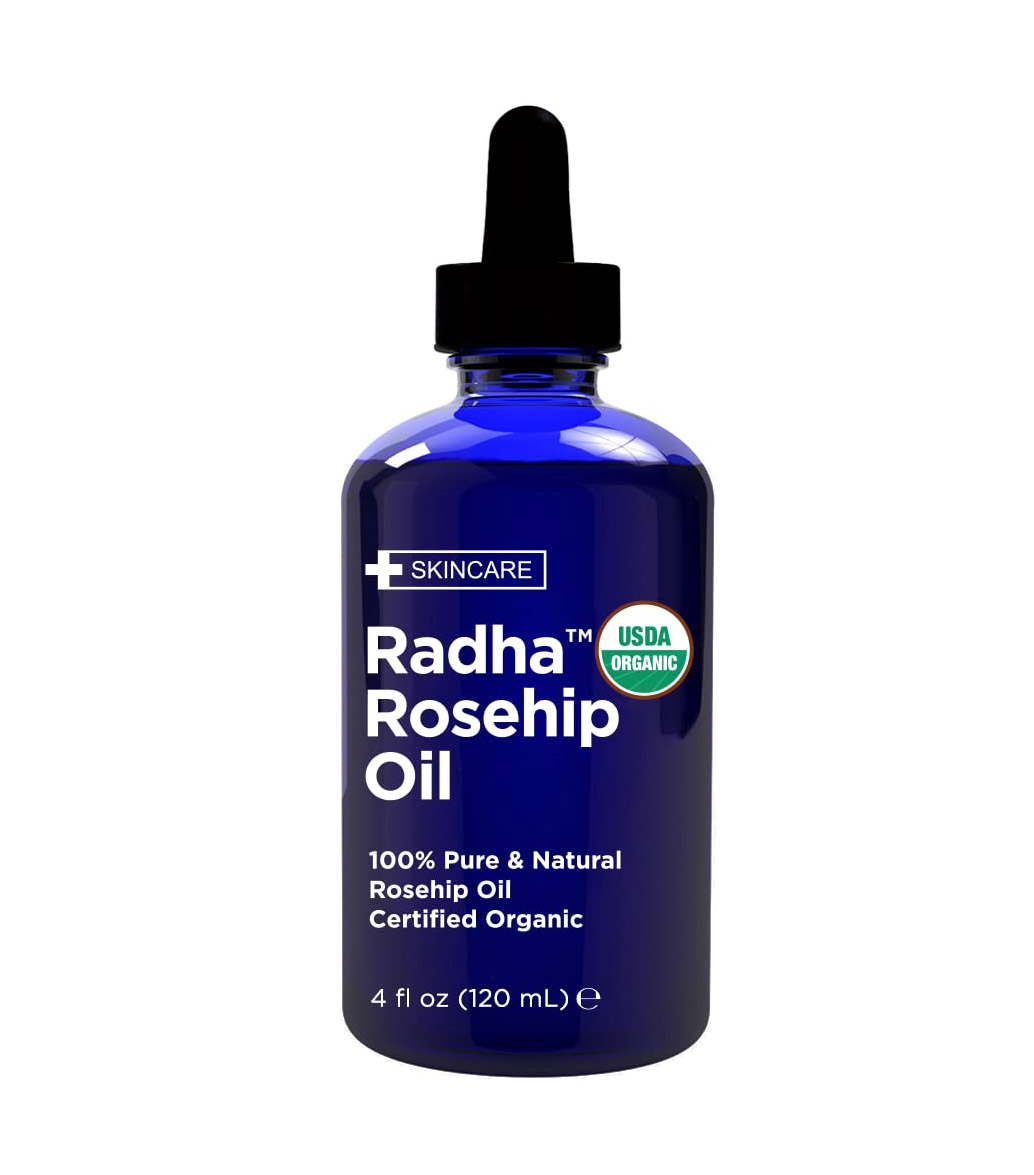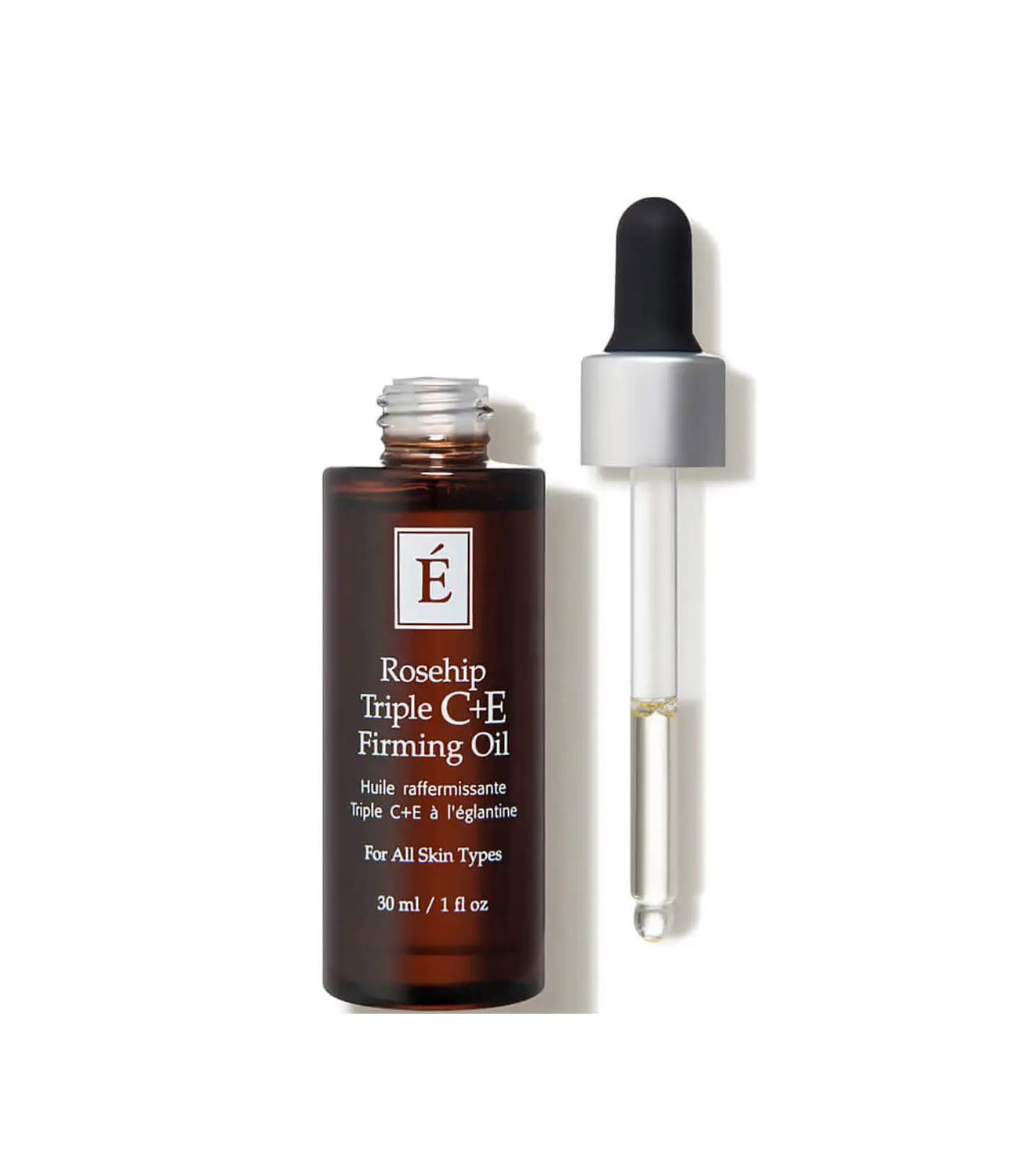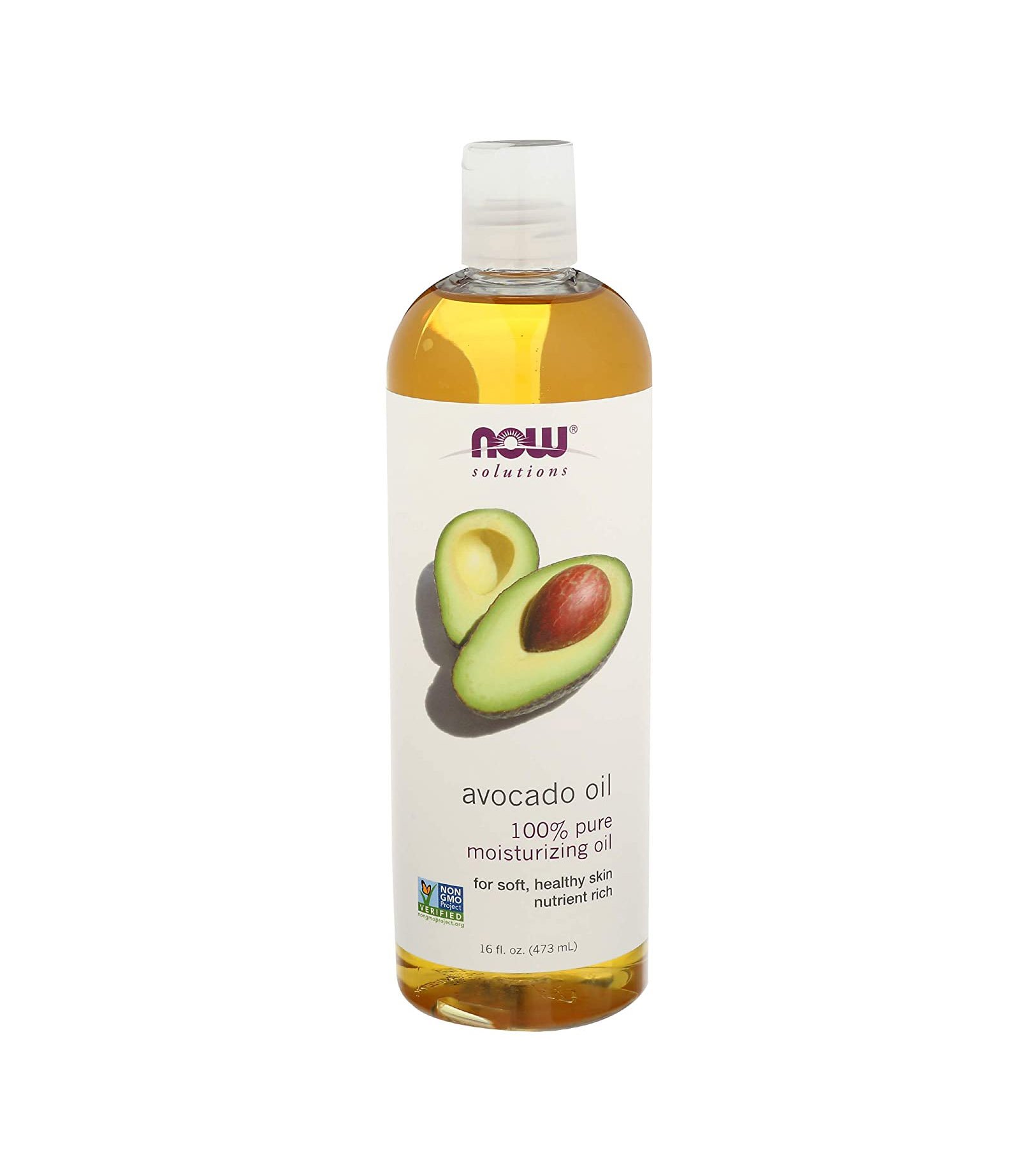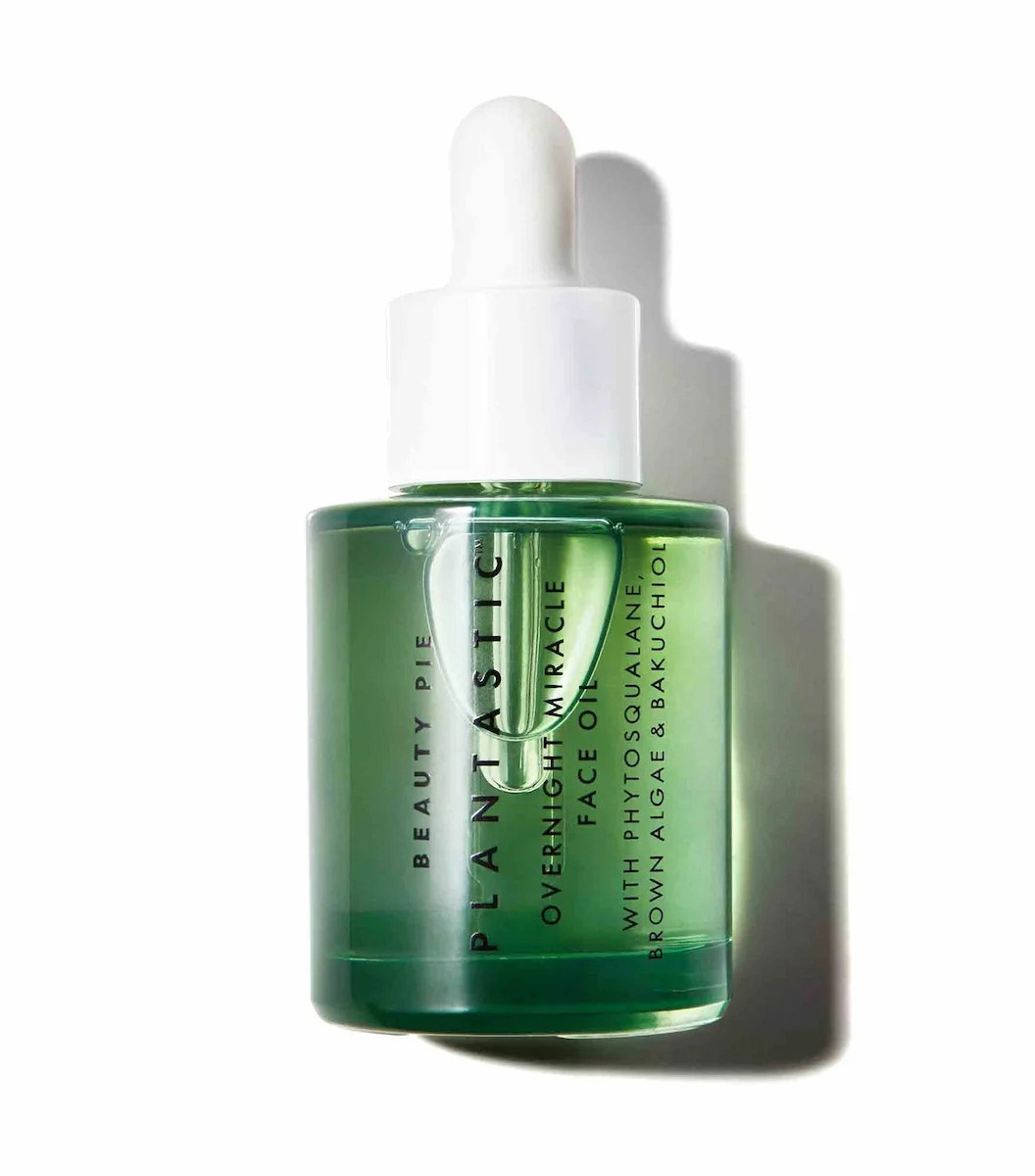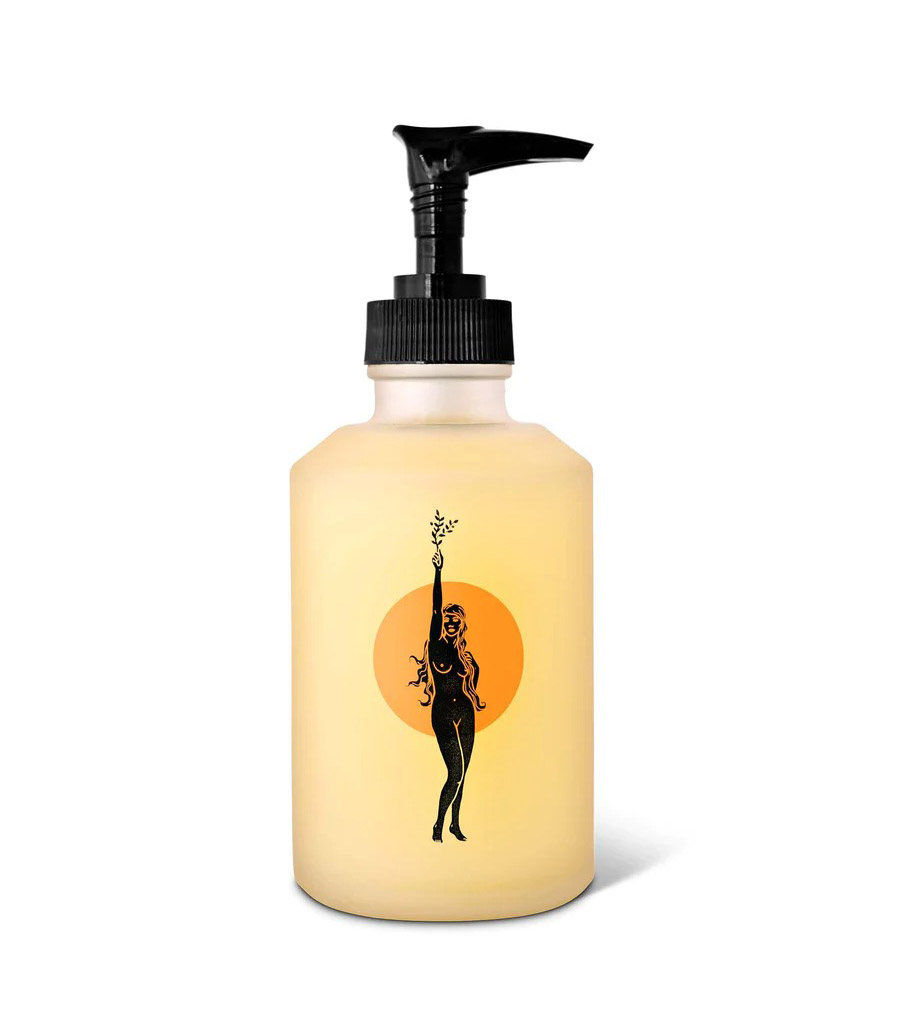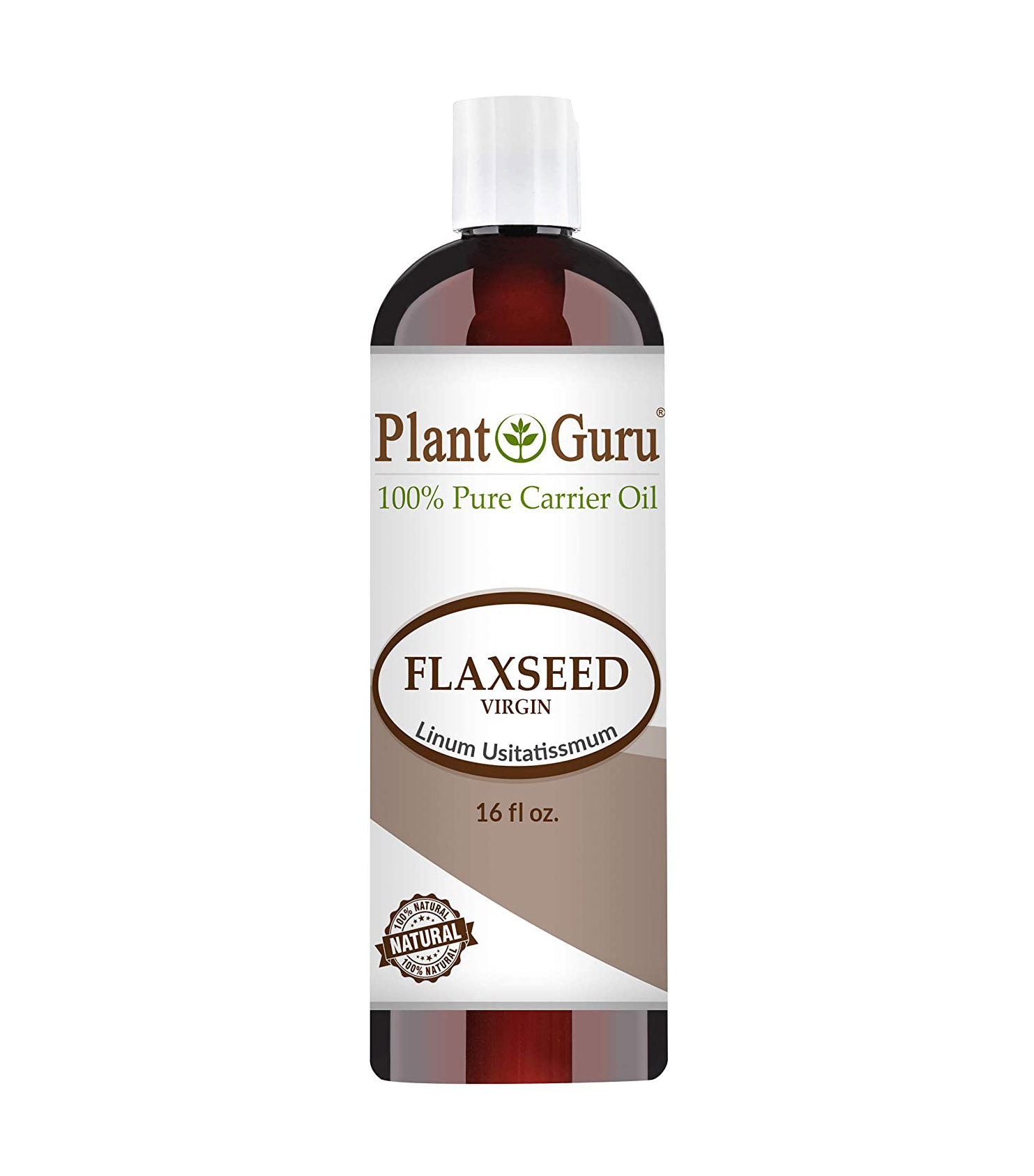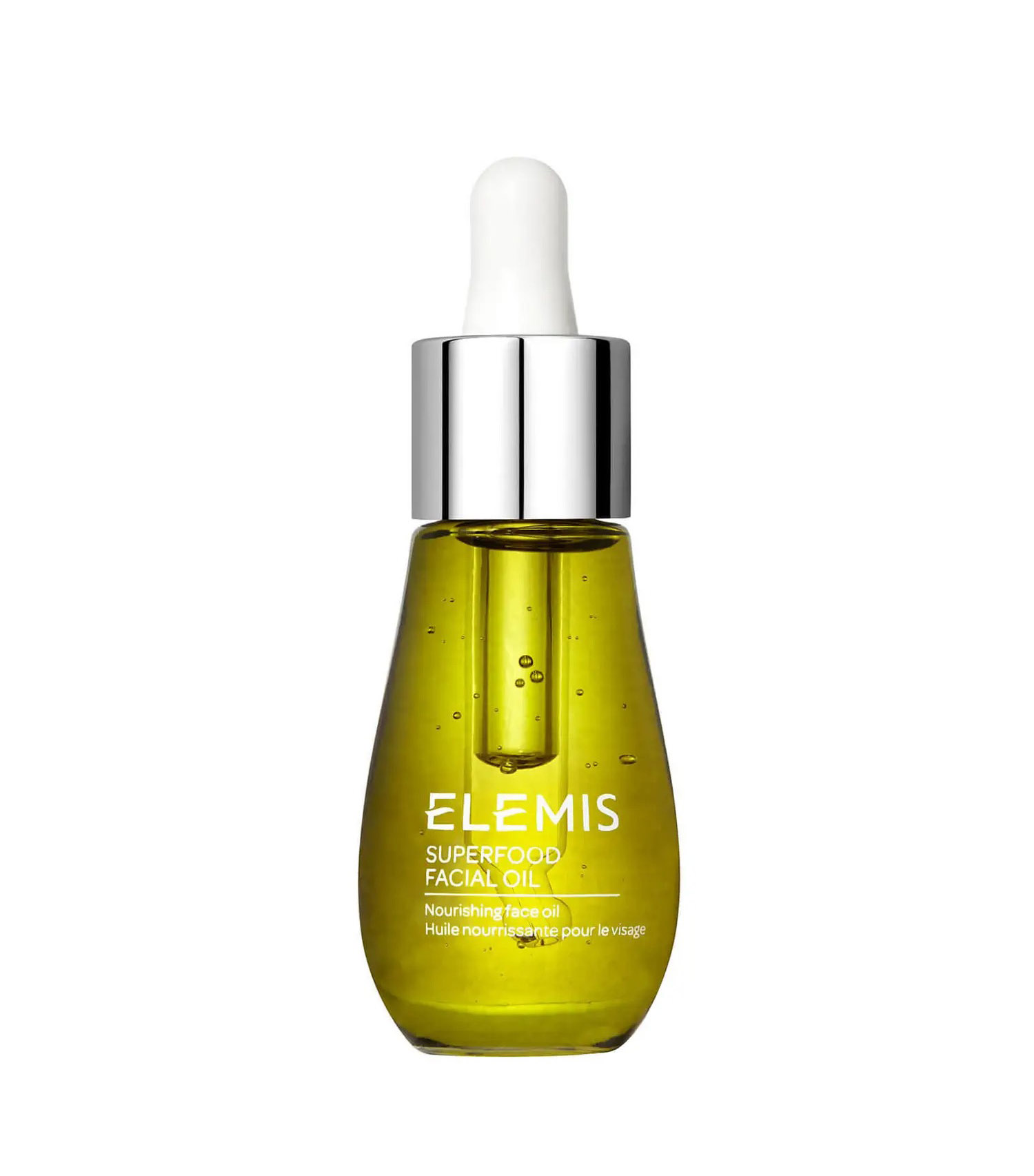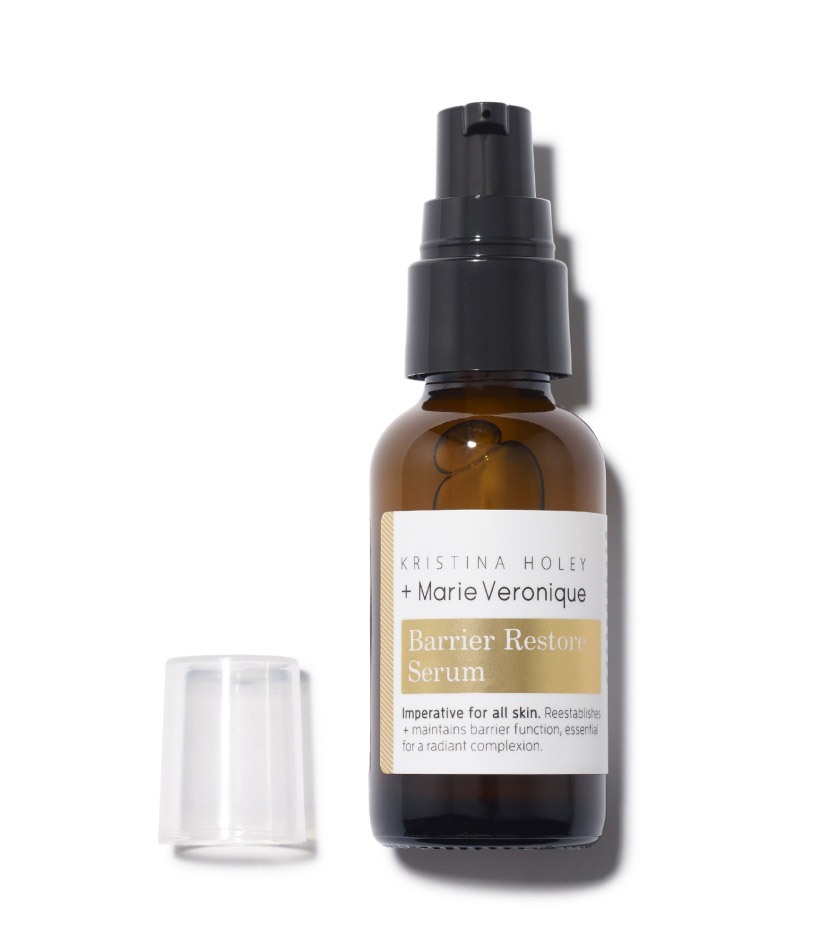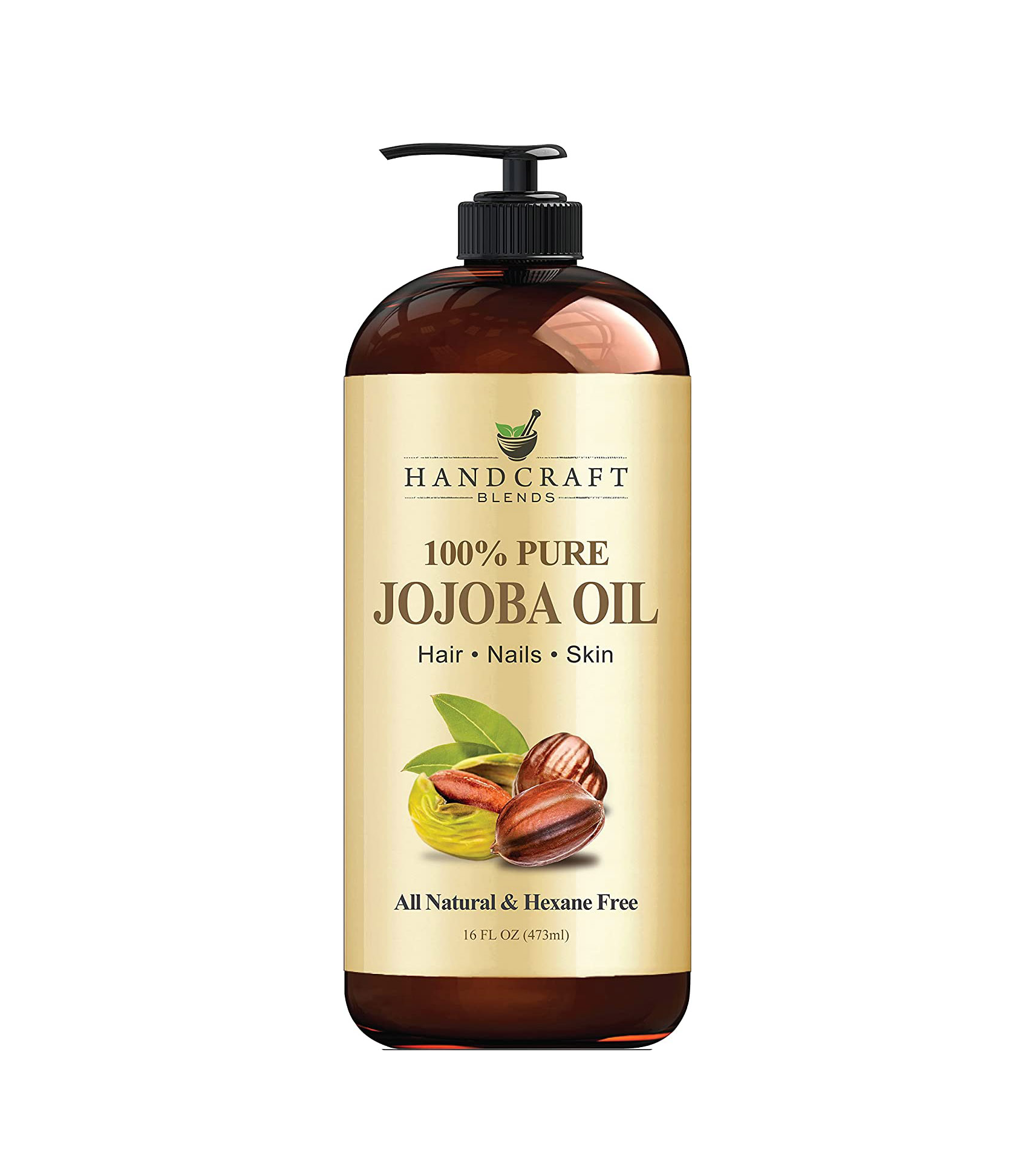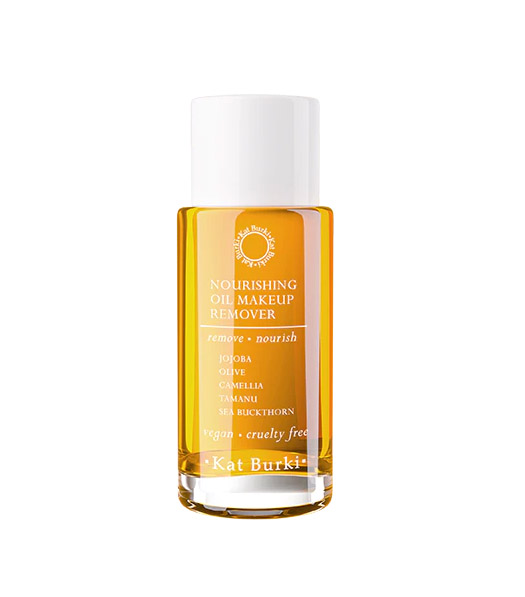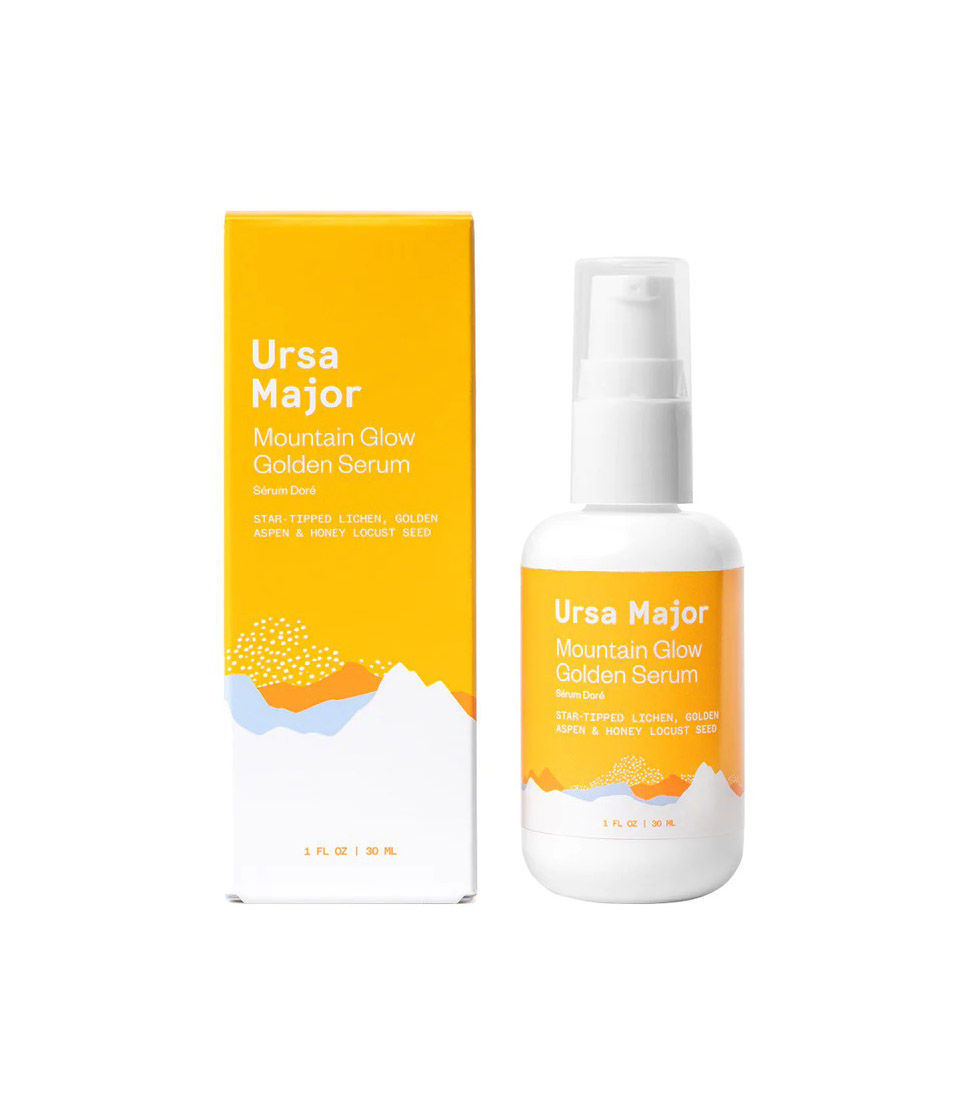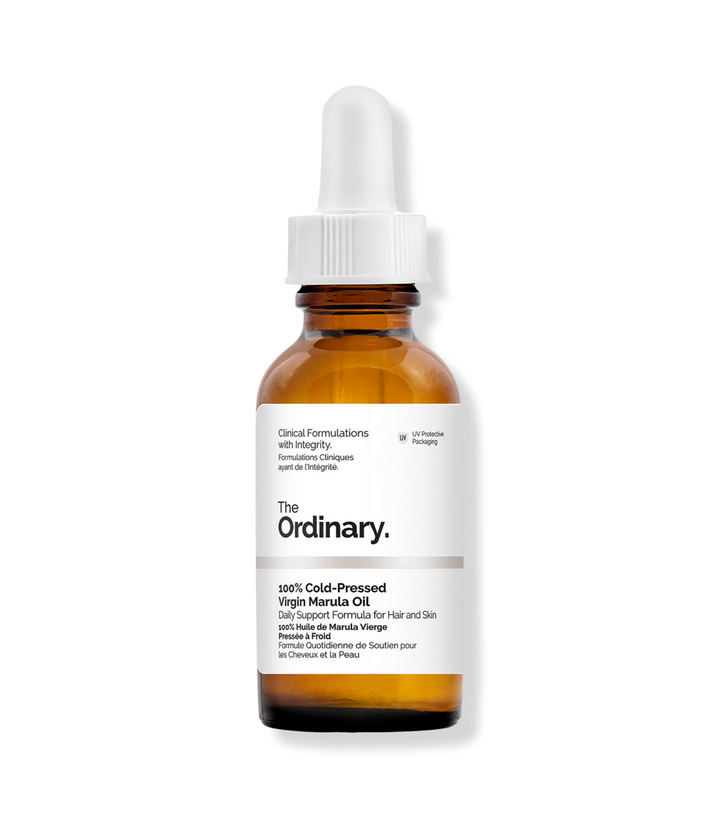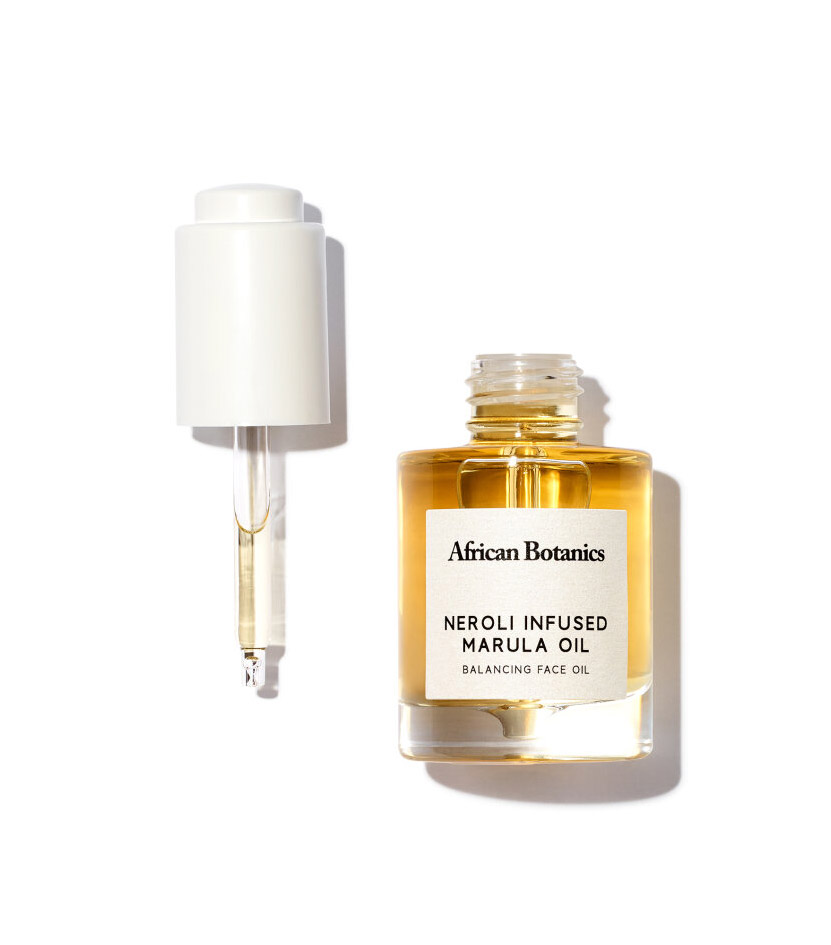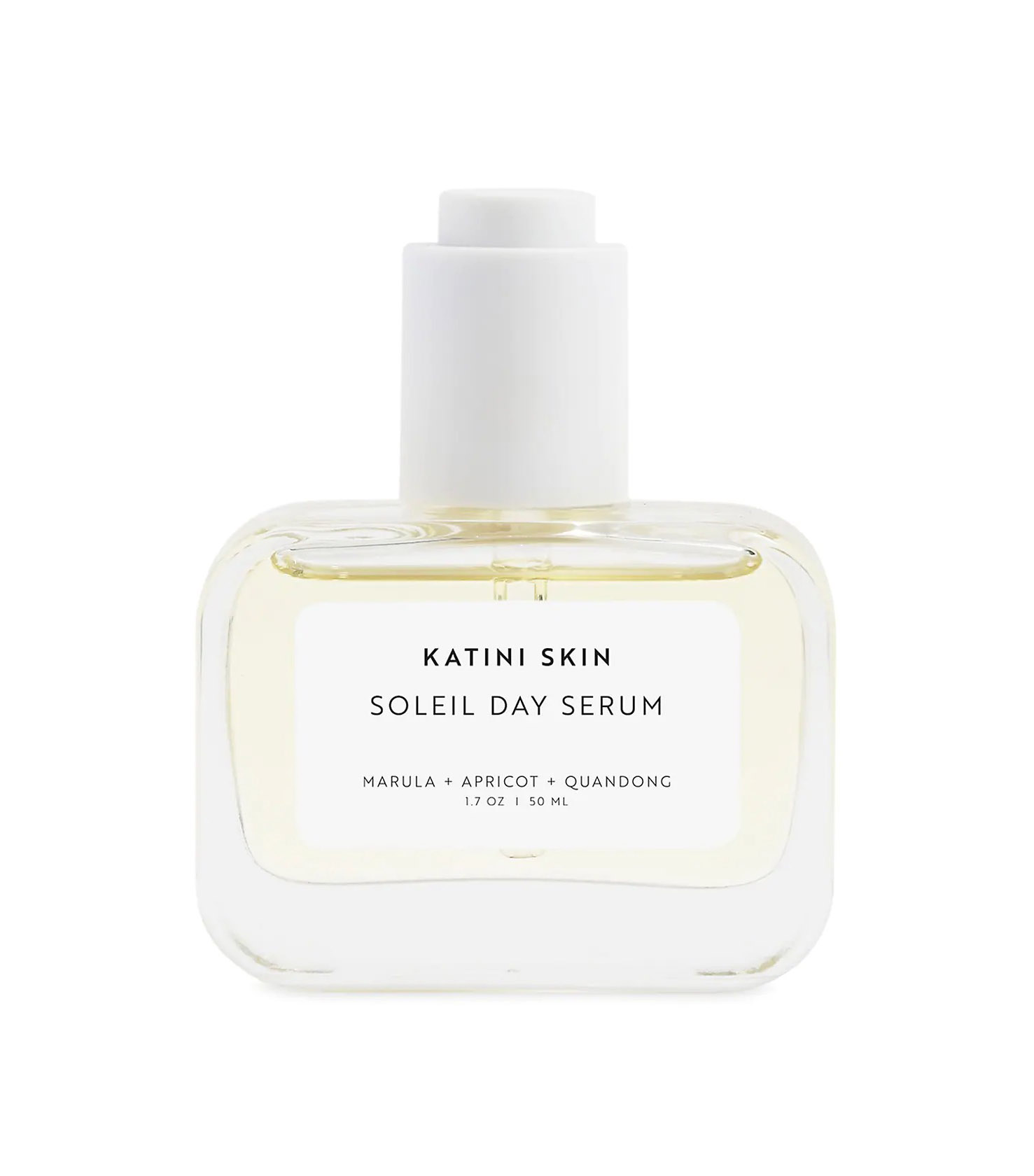These Plant-Based Oils Are Actually the Best at Curing Skin Problems
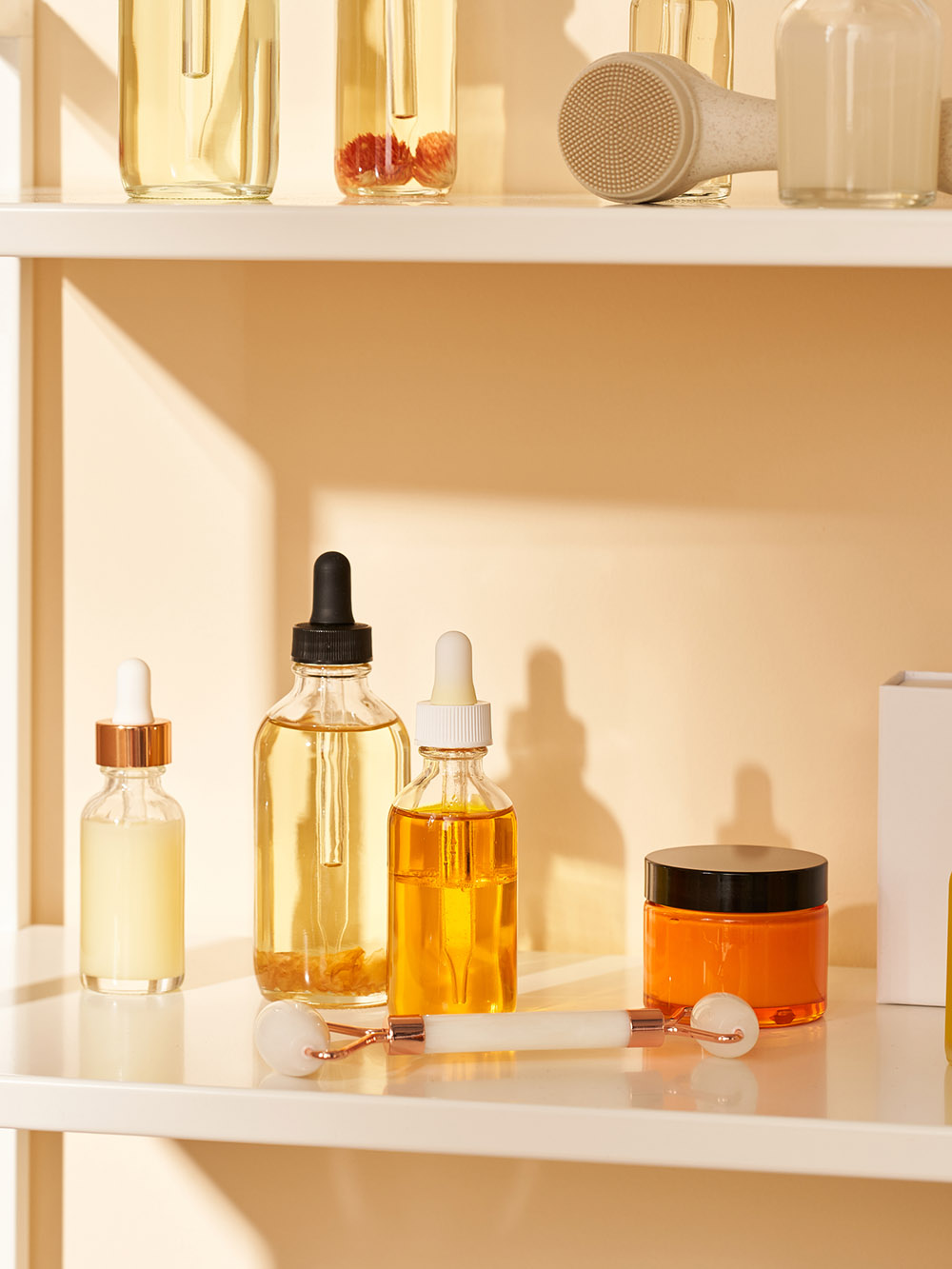
We know that some natural oils are great to incorporate in our diets, but what about our skincare routine? After all, natural plant-based oils have long been known and loved for centuries in skincare. Whether for moisturizing, protective, or antibacterial qualities, these simple oils can provide so many amazing benefits. Balanced between being lightweight yet deeply nourishing, these oils can hydrate just enough without leaving a greasy finish. All skin types—yes, even sensitive, combination, acne-prone, or dry skin—can benefit from these powerhouse ingredients. But which oils should you use, and how? What's the difference between them all? We've highlighted the best ones for you.
Read on for the best plant-based oils for skin to include in your routine.
1. Grape-Seed Oil
Extracted from grape seeds after they've been used to make wine, grape-seed oil is a skin-soothing wonder that seems to do it all. Its high levels of vitamin E and moisturizing fatty acids (like linoleic), make it ideal for clarifying and evening skin tone and helping fade under-eye circles and scars. Being a rich antioxidant, grape-seed oil increases collagen production, reducing the appearance of fine lines and improving elasticity for healthy, youthful-looking skin—all without clogging it.
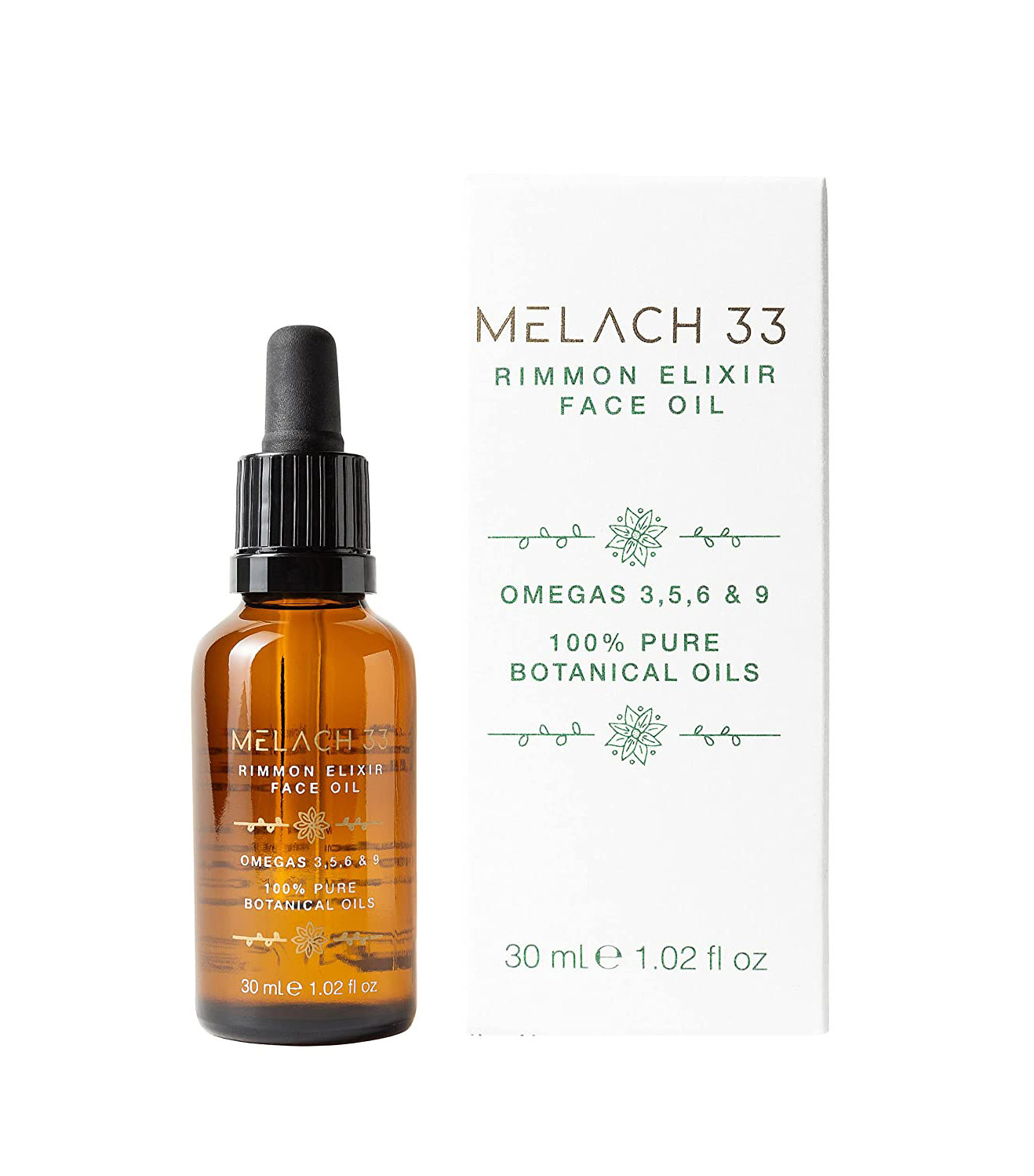
A potent blend of antioxidant- and omega-rich botanical oils including pomegranate-seed oil, grape-seed oil, and sweet almond oil provides intense nourishment and hydration within seconds. The perfect solution for sensitive skin, as it won't clog pores. Your skin will be left with a dewy, glowing complexion.
2. Sage Oil
Distilled from the fragrant leaves of the Salvia officinalis herb, sage has been treasured for centuries for its cleansing and purifying properties. In aromatherapy, the oil is known to stimulate, clarify, and balance the mind, and when used topically, it targets a whole range of skincare issues. Its moisturizing and conditioning properties help soothe dryness and irritation, as well as reduce inflammation and diminish the appearance of blemishes to balance the complexion.
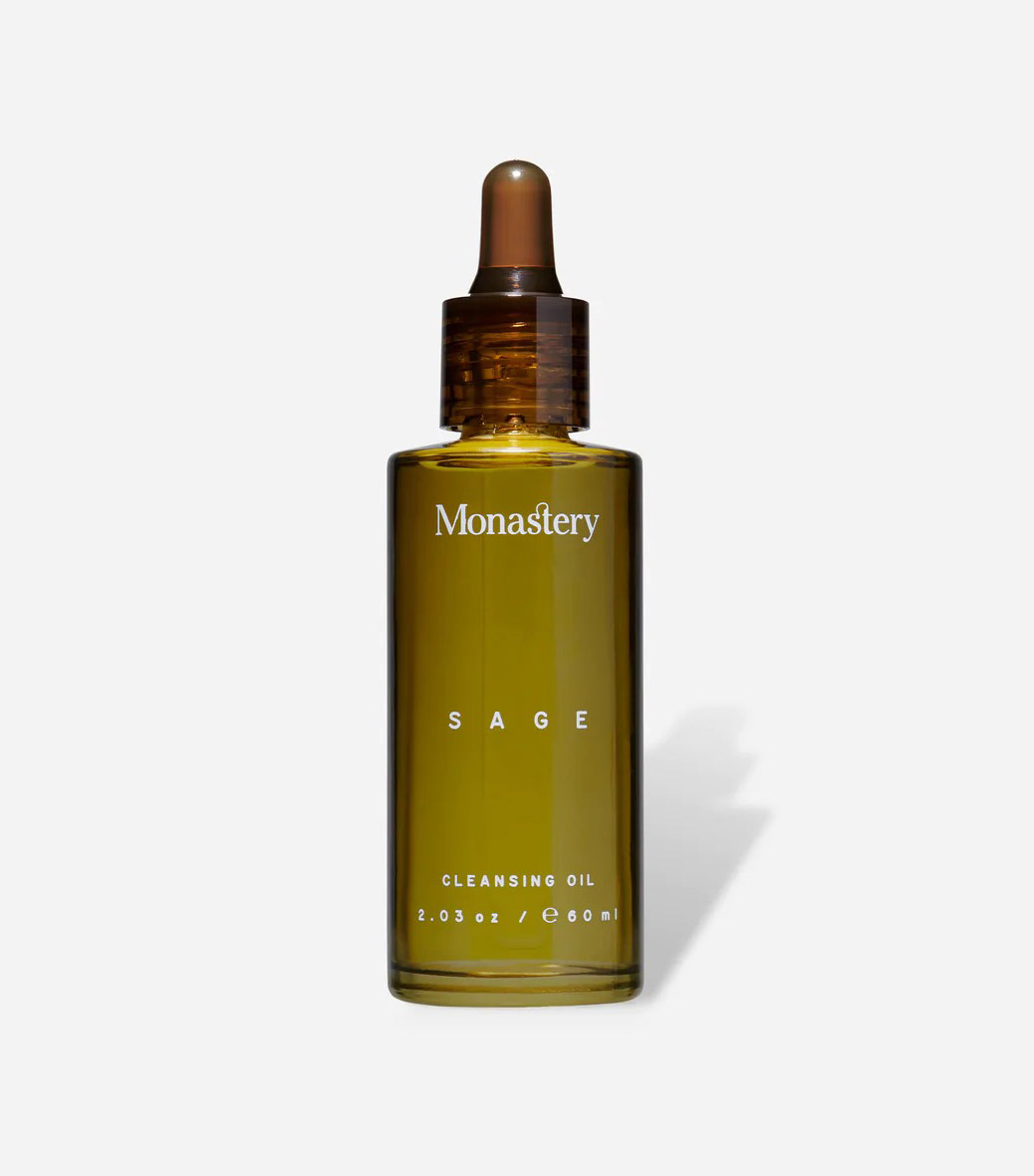
"The Sage Cleansing Oil holds a special place in my heart because we source our sage oil from the same island that my family hails from in Greece. Sage is considered a sacred herb. Its very name, Salvia, comes from Latin roots and means to salvage," shares Athena Hewett, aesthetician and founder of Monastery. "The reputation that sage oil has to cleanse and purify holds true when applied topically as well. Sage is excellent for the treatment of oily skin, as it has a very high astringent property due to its high eucalyptol content."
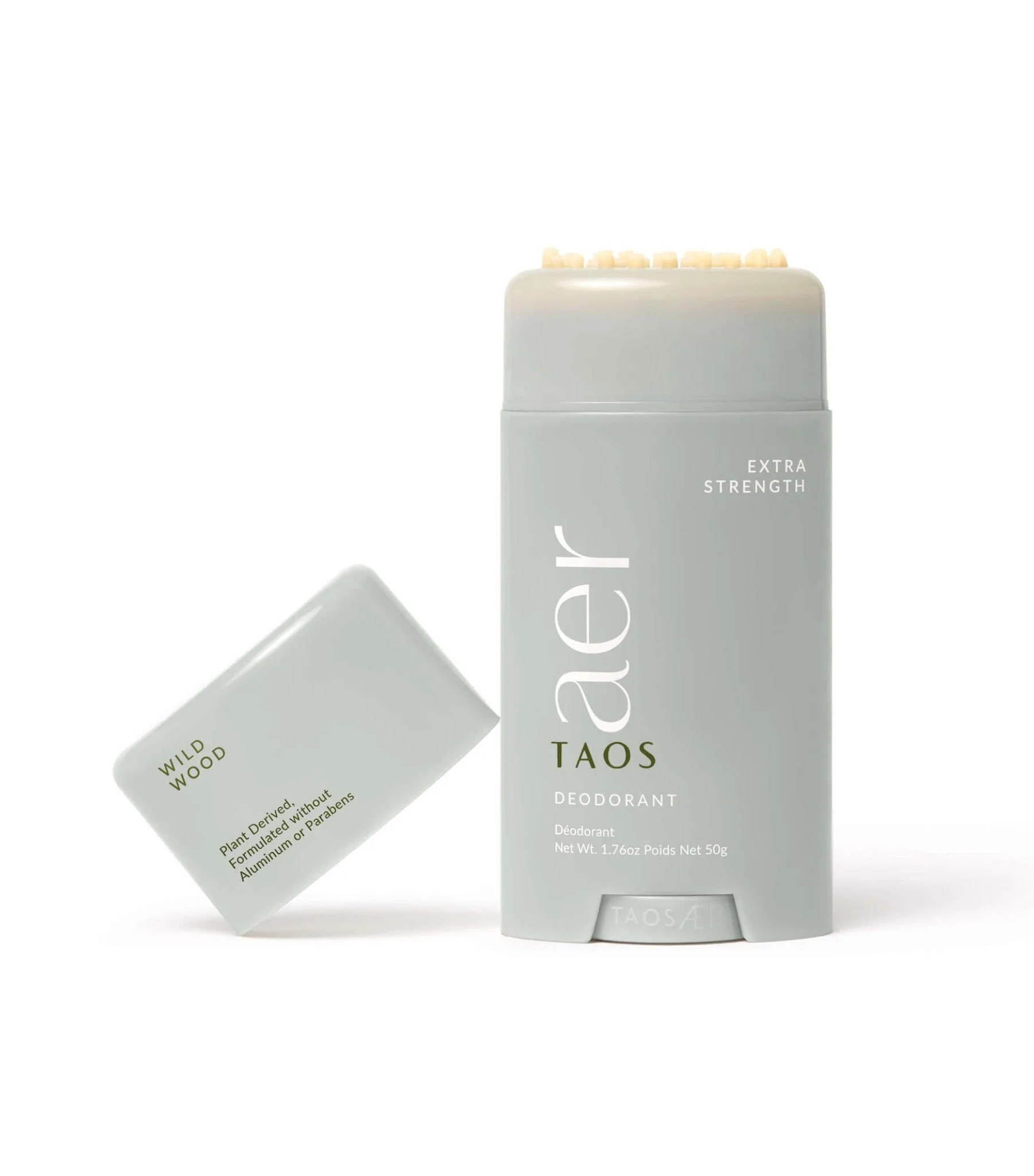
This natural and minimally processed deodorant is formulated without water, meaning it contains no fillers or harmful ingredients and has 100% effectiveness. Inspired by a morning hike in a mountain forest, it features the intoxicating warm and woodsy aroma from nourishing sage, cedar, and juniper oils.
3. Argan Oil
Argan oil is derived from the kernels of the argan tree's fruit that's native to Morocco. It contains high amounts of oleic and linoleic acids, which makes it extremely rich, and it features moisturizing fatty acids that can help reduce wrinkles and boost collagen production. Furthermore, the oil is especially crucial in treating aging skin because it is linked to the maintenance and repair of healthy skin through its impact on elasticity and hydration.
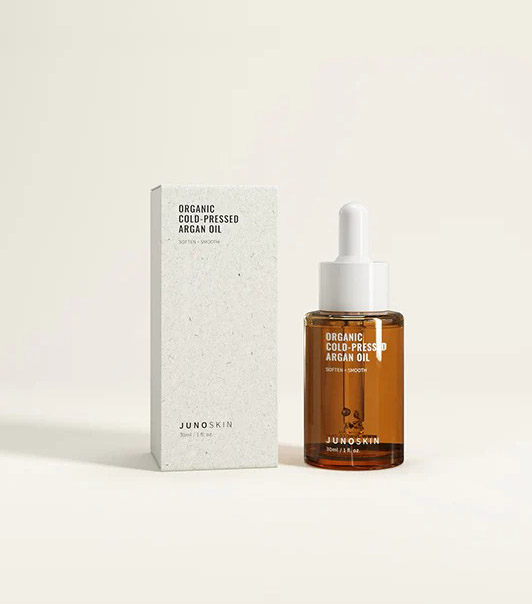
A wonder for dull skin, this pure argan oil contains all the skin-protecting antioxidants, such as polyphenols and vitamin E, that help maintain the skin's youthfulness. Anti-inflammatory fatty acids offer moisture and nourishment to skin deep below skin levels for lasting hydration.
4. Rose-Hip Oil
Extracted from wild rose bush seeds, rose-hip oil is the ultimate all-in-one skin treatment and isn't your typical hydrating or anti-aging oil. Rich in essential fatty acids and containing vitamins E, C, and D plus beta-carotene, the oil has a high antioxidant count that helps protect and hydrate skin, fight free-radical damage, reduce wrinkles and sun spots, and rejuvenate the skin to restore elasticity.
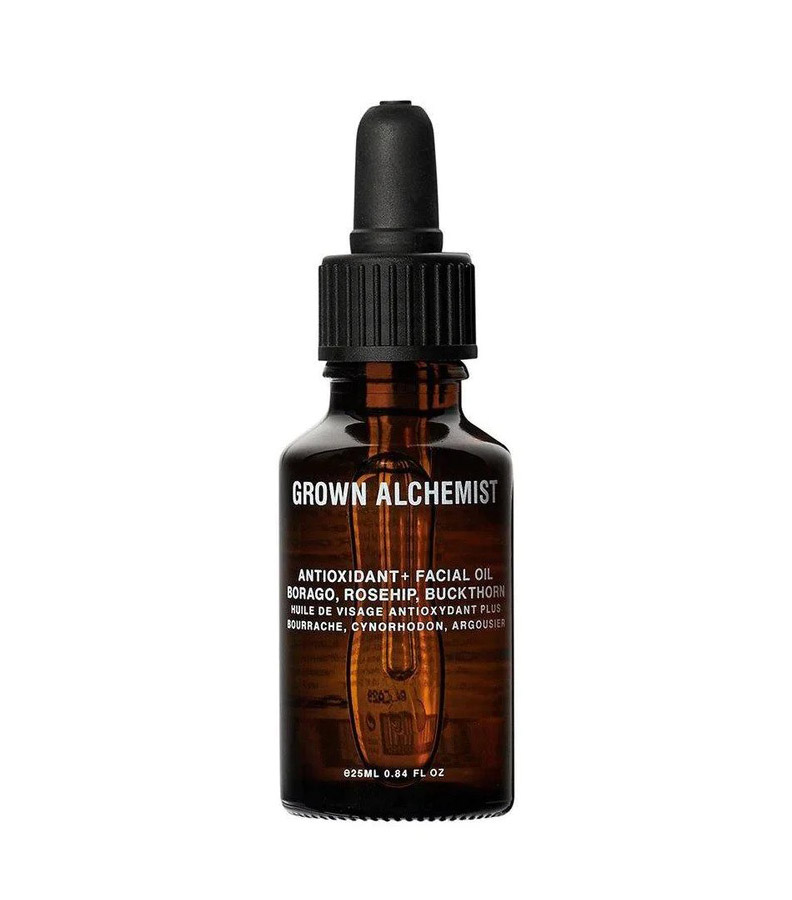
Not only does this winner contain the anti-aging powerhouse, but it also contains borage seed, camellia seed, sweet almond, macadamia oil, and sea buckthorn berry, which impart high concentrations of vitamin C and E to even skin tone, brighten, and help fade discolorations and age spots. Omegas-3, -6 and -9 provide deep moisturization without any of the oily residue for smooth, firm, and youthful skin.
5. Avocado Oil
Another reason to love avocados! It's a light vegetable oil that spreads easily on the skin and absorbs quickly. The oil is also rich in essential fatty acids and vitamins A, C, and E that provide softening, protective and antioxidant properties and soothing effects. The effects are moisturizing and regenerative.
6. Flaxseed Oil
Flaxseed oil, also known as linseed, is a nutrient-packed seed high in omega-3 fatty acids, which are crucial in a healthy diet and cardiovascular health. It is rich in emollient essential fatty acids that softens and protects the skin and helps to maintain its elasticity.
7. Jojoba Oil
"Jojoba oil is very rich in B vitamins—not just one but all eight. This makes it a healing superstar, stimulating wound healing such as in acne and acne scars, sun damage, and signs of aging," shares skincare founder Kat Burki. Her brand features the oil in several of its products due to its antibacterial benefits. Even oily skin would benefit from it because it's noncomedogenic and won't block pores.
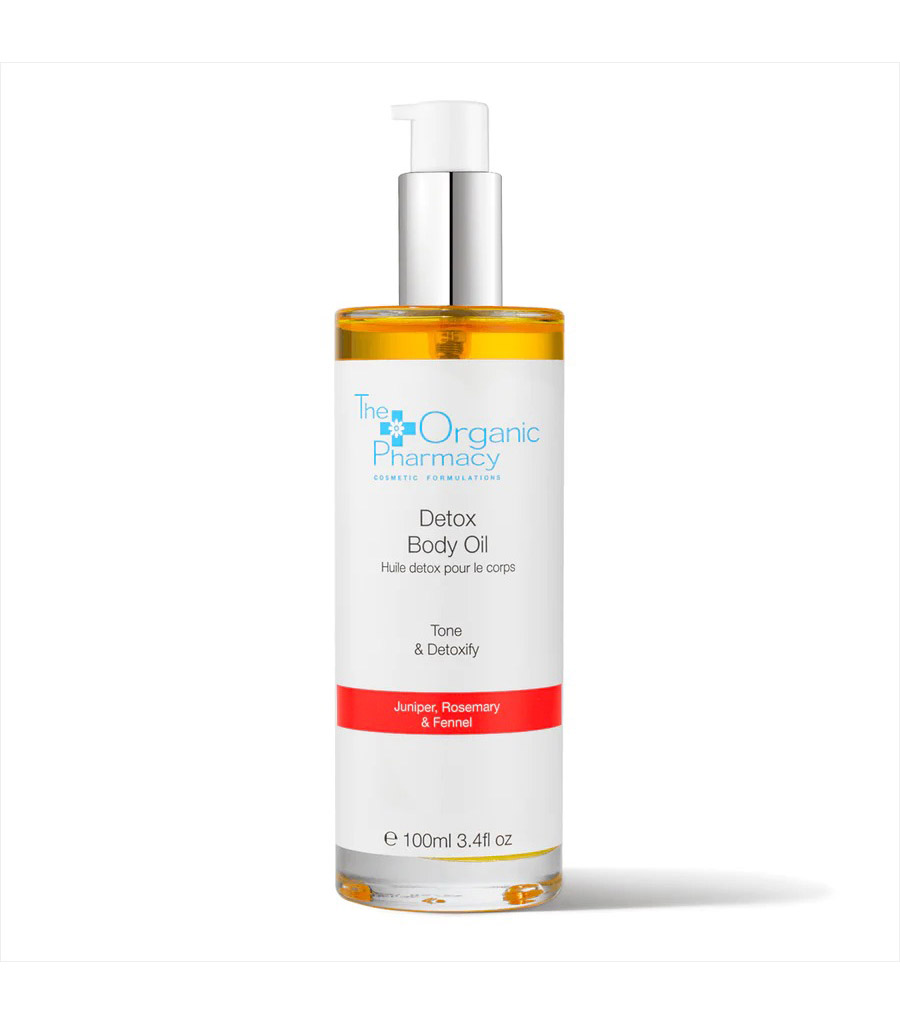
"The Detox Body Oil is a really important formulation to help keep our limbs and skin healthy. The essential oils of juniper, grapefruit, and rosemary 'drain' the limbs, which means it helps get rid of excess fluid and water via the lymphatic and circulatory systems as well as cellulite," says Margo Marrone, co-founder of The Organic Pharmacy. "Used with the skin brush, it really helps to keep the skin super healthy. Jojoba, rose hip, and calendula are packed with vitamins and antioxidants to heal and keep skin super soft."
8. Marula Oil
Marula oil is a naturally occurring oil derived from the marula tree and loved for centuries, as it seals in moisture for long-lasting hydration.
Next, This Secret All-Natural Ingredient Has So Many Healthy Uses
This article is provided for informational purposes only and is not intended to be used in the place of advice of your physician or other medical professionals. You should always consult with your doctor or healthcare provider first with any health-related questions.
